June 26, 2025
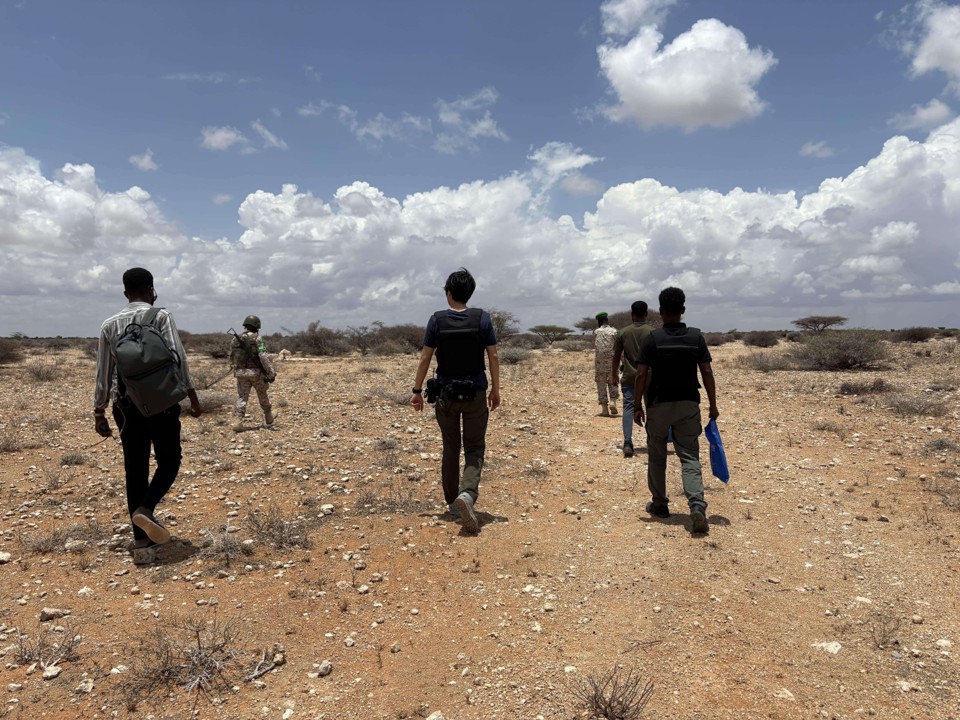
The Somalia division is working to support youth leave the non-state armed group Al-Shabaab and reintegrate into society as agents of peace.
This time, we will report on the progress of efforts to encourage disengagement and support reintegration in central Somalia.
Efforts to encourage disengagement in central Somalia
Somalia is currently in the midst of an ongoing conflict between multiple armed groups, with the so-called violent extremist organization Al-Shabaab at the center of the conflict between the Somali government forces. Al-Shabaab in particular controls around 30 to 40 percent of Somalia’s territory, and the situation remains serious.
Some young people have joined Al-Shabaab in order to survive in such harsh conditions, while others have been forced to become combatants due to threats from the organization.
They are not allowed to speak freely within their organizations and are overworked, and many young people are losing their lives on the front lines fighting government forces.
As a result, there are actually many young people who wish to leave non-state armed groups if possible.
To help these people leave Al-Shabaab, we have worked with local government forces, African Union forces, and local communities to distribute leaflets spreading information about disengagement, broadcast widely on the radio, and operate a hotline, and have actually helped more than 500 people leave the organization.
As part of this, we recently traveled directly to an area close to the conflict zone together with African Union forces to speak to religious leaders and representatives of the local community about our efforts and received their cooperation in distributing leaflets.
Furthermore, because many young people in Al-Shabaab fear that they will be tortured by the government or other parties if they disengage, we also emphasize that they can live safely in rehabilitation facilities and receive social reintegration programs.
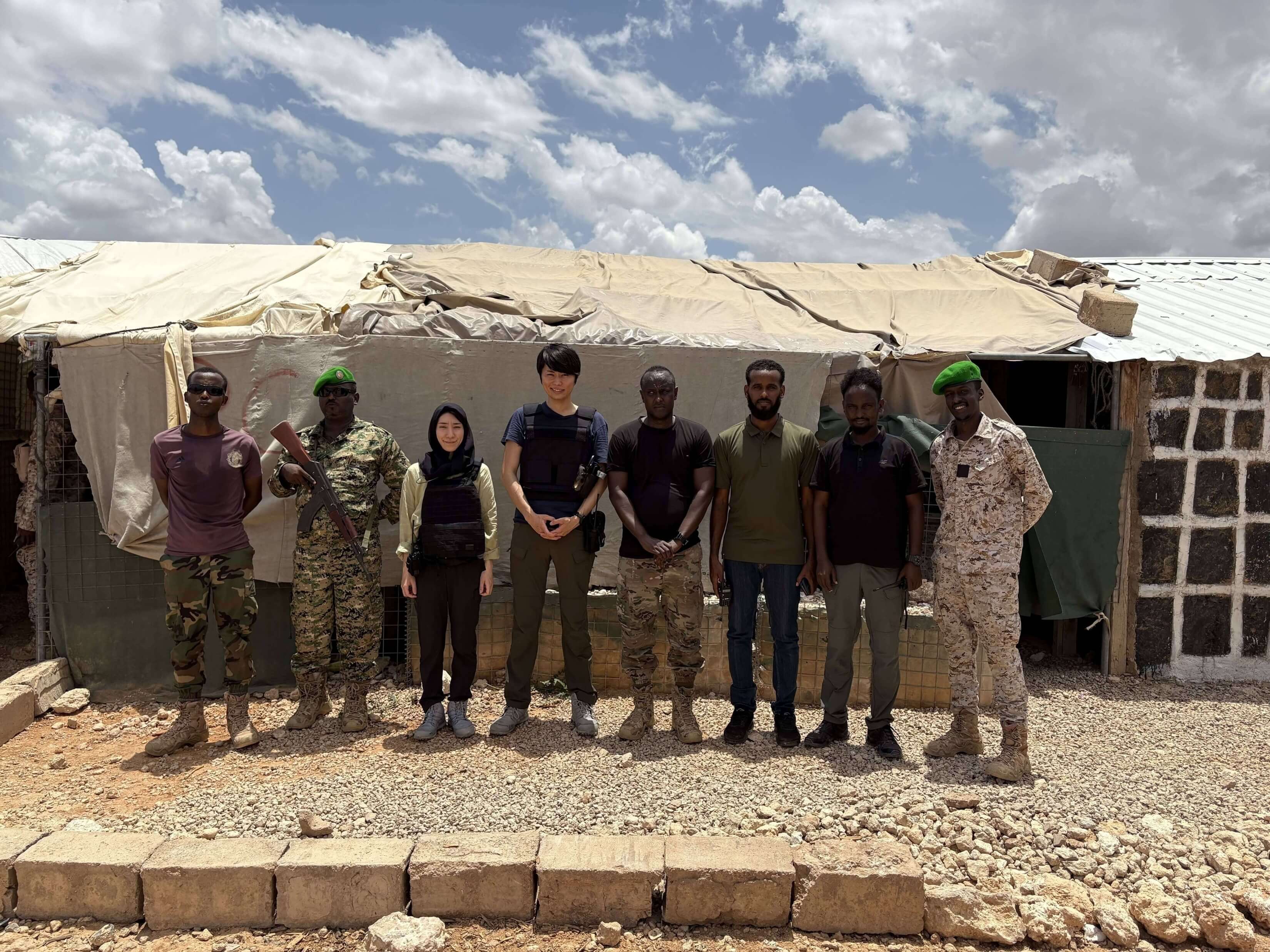 Through these efforts, three young combatants disengaged in May.
Through these efforts, three young combatants disengaged in May.
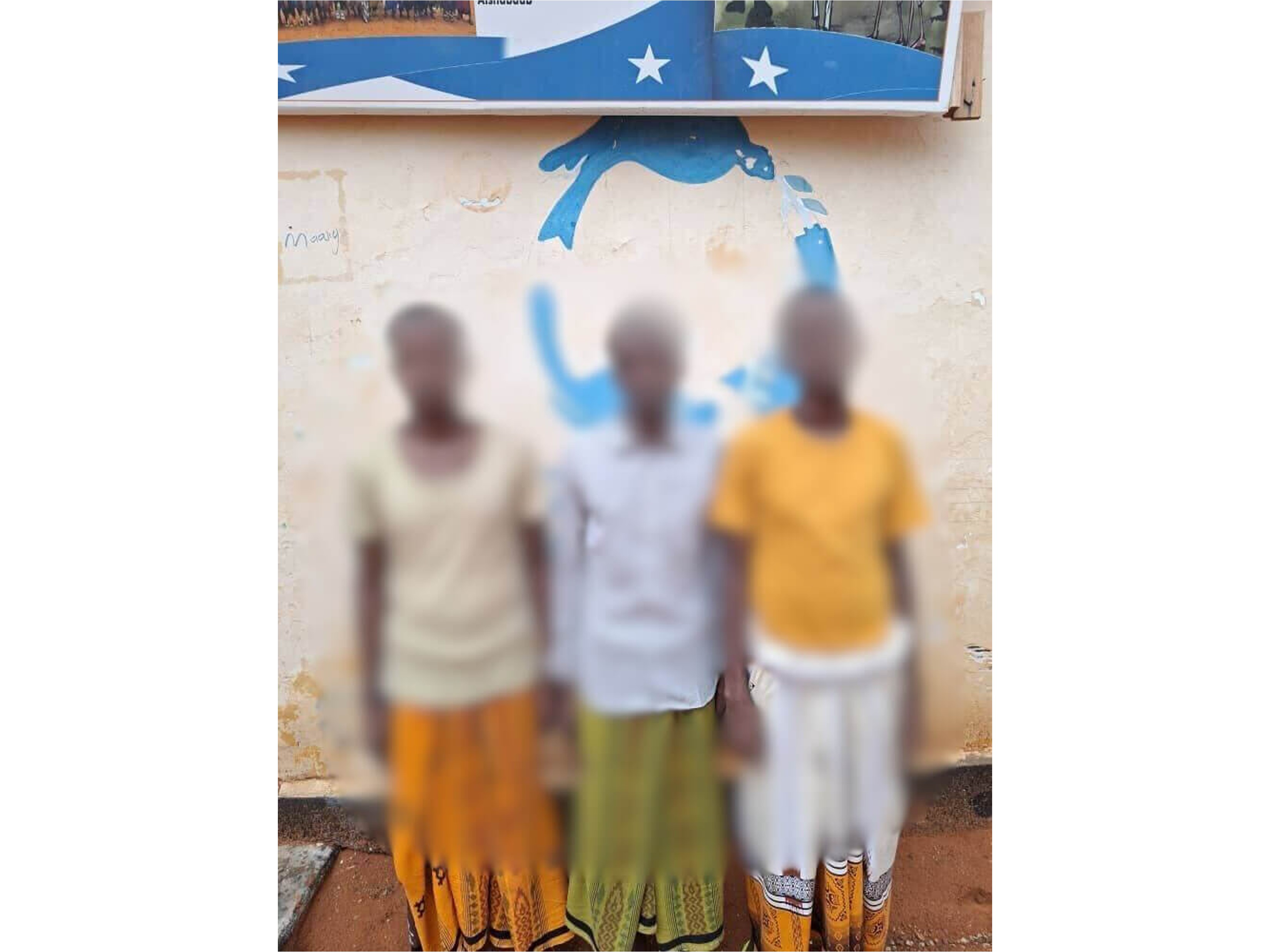 Three former combatants who disengaged in May
(From left: 20-year-old, 19-year-old, and 20-year-old young people)
Three former combatants who disengaged in May
(From left: 20-year-old, 19-year-old, and 20-year-old young people)
Having risked their lives to disengagement after going through harsh experiences, the expressions on their faces when they first arrive at the facility are always stiff. However, as they spend time at the rehabilitation facility, they gradually begin to smile more, and when they graduate, they are often surprised at how much they have changed when they look back at photos of themselves when they first arrived.
Supporting social reintegration at a rehabilitation facility in central Somalia
The rehabilitation facility provides religious re-education, basic education such as reading, writing, and arithmetic, care counselling through dialogue, and vocational training. Between October 2024 and March 2025, 19 people successfully graduated and returned to society. Currently, the facility accommodates around 50 people at a time, and each person typically spends about a year in the program before reintegration.
A key focus of the facility is creating an environment where participants can freely engage in activities that were forbidden while they were in Al-Shabaab. For example, young people deepen their emotional bonds through entertainment such as traditional local dances or card games.
If participants are isolated, they may spend their time in a psychologically unstable state, which can increase distrust and alienation toward society and even intensify feelings of hatred. In such a state, even if they return to society, they may be vulnerable to re-recruitment by Al-Shabaab and become trapped in a cycle of hatred. For this reason, “spending time in a harmonious atmosphere with peers” is considered essential.
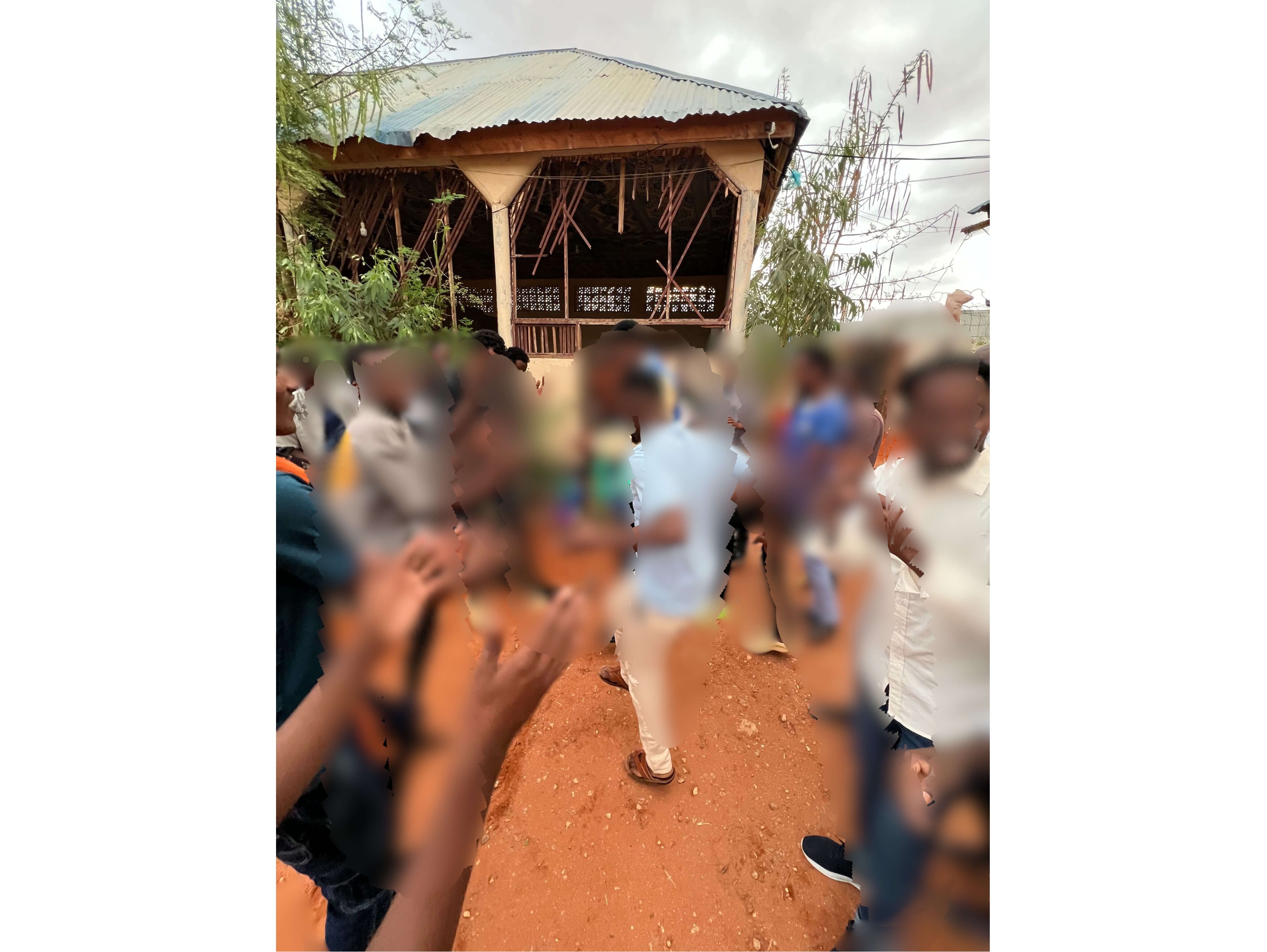 ▲Young people enjoying a traditional local dance.
▲Young people enjoying a traditional local dance.
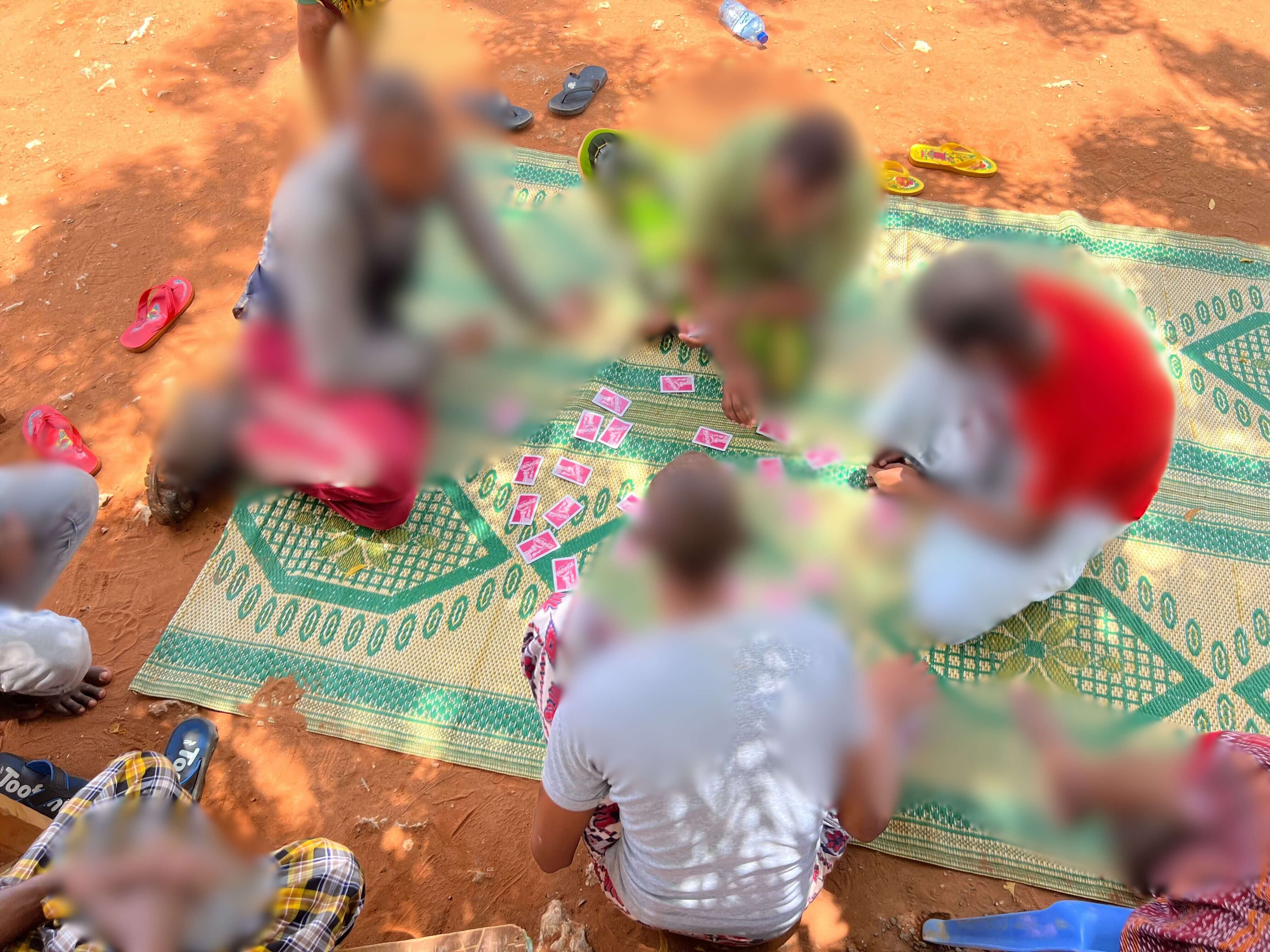 ▲Playing a memory card game (the state of concentration).
▲Playing a memory card game (the state of concentration).
As a side note, perhaps due to having been in harsh environments, they have an exceptionally high level of instant memory, which even surprises the staff. Although playing cards—a Western pastime—are banned by Al-Shabaab, that is precisely why it’s important to broaden one’s horizons through such forms of enjoyment.
Additionally, since autumn last year, we have also started offering classes on basic computer skills such as Word and Excel, with the aim of connecting students to various employment opportunities through learning the basics of writing sentences and creating tables.
Furthermore, we also provide classes to help them develop a sense of money so that they can live financially independently after graduating from the facility. “Money lessons” do not seem to be very common in Japan either, but this is because local young people also have few opportunities to learn how to use and manage money, and are unable to make a living while saving.
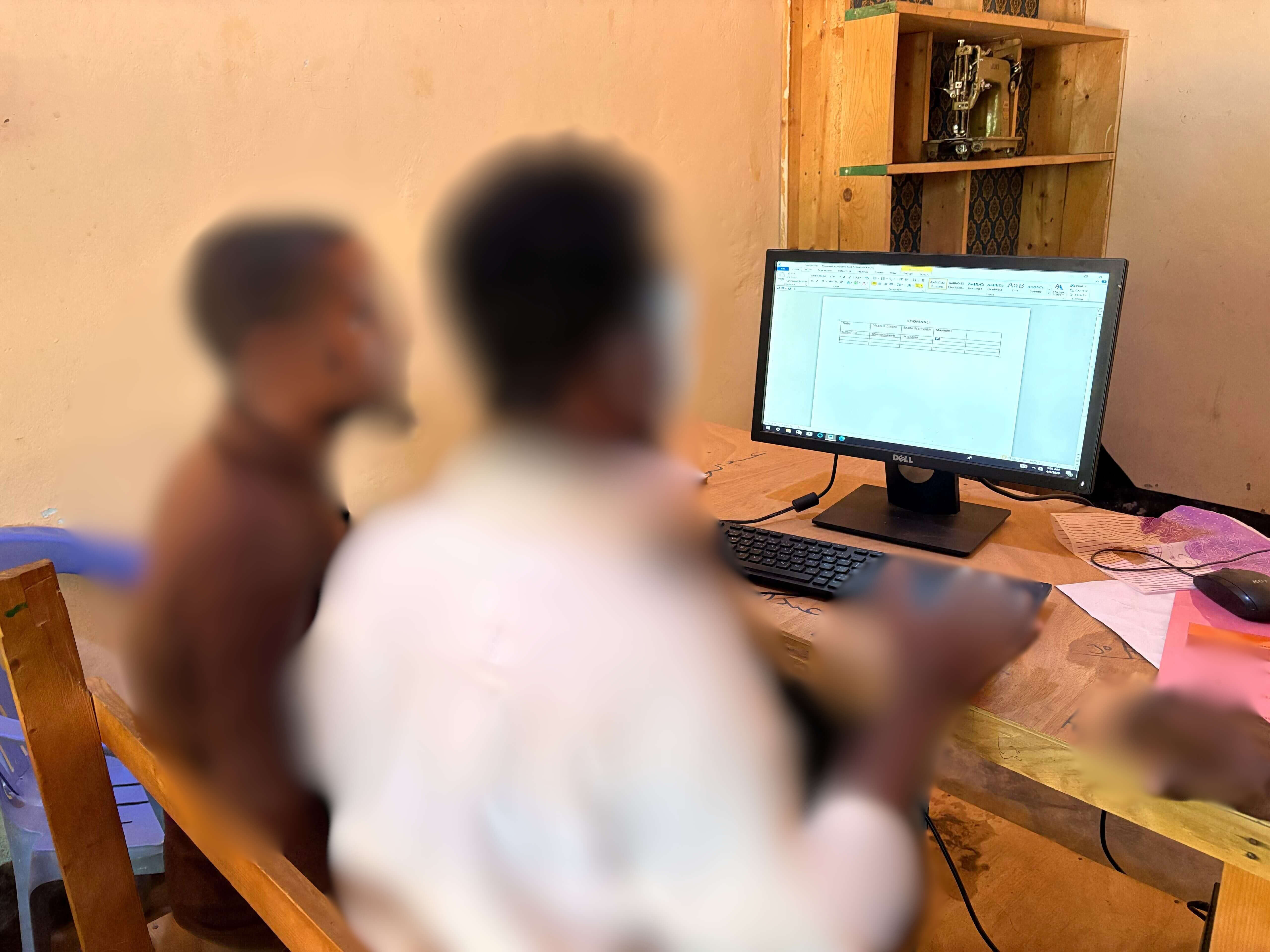 ▲A computer skills class
▲A computer skills class
We will continue to provide comprehensive support to ensure that after they graduate from the rehabilitation facilities, they do not take up arms again and can live their lives as agents of peace.
A word from Ms. Takahashi from the Somalia Division about the outlook for the future
This is Ms.Takahashi from Deputy Director of the International Project Dept. Since the beginning of this year, attacks by Al-Shabaab in Somalia have become stronger than ever, with Al-Shabaab recapturing key frontline positions, further destabilizing the situation. While it may be tempting to give up in these circumstances, it is precisely at times like these that we need to convey to young people who want to leave the fighting that there are opportunities available and to create a system that will accept them. This is the thought that drives our daily activities.
I walked through the arid areas of central Somalia, on the front line, where anti-vehicle mines are buried, and spoke with local community representatives, who frankly told me, “Both Al-Shabaab and government forces visit our community, but they don’t offer any help to help us cope with our difficult living conditions, and we feel abandoned by both.”
It is precisely because of these circumstances that we went there with all our might and conveyed our feelings to the local people and the young people who had taken up arms. The words we received made a strong impression on me and have remained in my mind: “We are grateful that you have not abandoned us or the young people.” It is precisely because the situation is so severe, and because no one else is able to do this, that we strongly feel that we must build connections and trust with the people in these frontline areas, little by little, and work together to convey our voices to the young people caught up in the fighting.
This attitude is necessary not only for encouraging disengagements, but also for all of the efforts we are carrying out in Somalia, including providing rehabilitation support to disengaged combatants and support in prisons. Currently, with international donors halting support for rehabilitation facilities for disengaged combatants, the rehabilitation facility for disengaged combatants that we established and run together with the government in central Somalia is the only functioning rehabilitation facility in the country. The central prison in the capital, Mogadishu, is also too risky to provide long-term support, so we are continuing our efforts to help young people get back on their feet.
We will continue to do everything we can, with the awareness and pride that our efforts will help fill the gap in what needs to be done to resolve the conflict in Somalia and help as many young people as possible discover new possibilities other than fighting.
Activity Reports










